29 November 2017
Towards a sustainable future
Exploring the last 9 Sustainable Development Goals
On December 2015, the International Community subscribed the United Nations’ Agenda 2030, embracing the Sustainable Development Goals (SDGs) by committing to formulate regional, national and global “sustainable” developmental policies.
Overall, the Agenda 2030 presents 17 Sustainable Development Goals. These are the last 9.
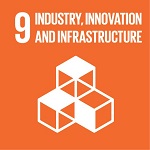
Goal 9: Build resilient infrastructure, promote sustainable industrialization and foster innovation
Investments and improvements in infrastructures, from transports to irrigation, from energy to information and communication technology, represents a crucial means to empower communities while fostering sustainable development.
- Develop quality, reliable, sustainable and resilient infrastructure, with a focus on affordable and equitable access for all.
- Promote inclusive and sustainable industrialization.
- Increase the access of small-scale industrial and other enterprises to financial services, including affordable credit, and their integration into value chains and markets.
- Upgrade infrastructure and retrofit industries to make them sustainable, with increased resource-use efficiency and greater adoption of clean and environmentally sound technologies and industrial processes.
- Enhance scientific research and upgrade technological capabilities.
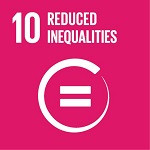
Goal 10: Reduce inequality within and among countries
Despite significant progresses towards lifting people out of poverty, inequalities still persist and large disparities continue to discriminate in terms of access to health and education services and other assets.
- Achieve and sustain income growth of the bottom 40 per cent of the population at a rate higher than the national average.
- Empower and promote the social, economic and political inclusion of all.
- Ensure equal opportunity and reduce inequalities of outcome, including by eliminating discriminatory laws, policies and practices and promoting appropriate legislation, policies and action in this regard.
- Improve the regulation and monitoring of global financial markets and institutions.
- Ensure enhanced representation and voice for developing countries in decision-making in global international economic and financial institutions.
- Facilitate orderly, safe, regular and responsible migration and mobility of people.
- Reduce to less than 3 per cent the transaction costs of migrant remittances and eliminate remittance corridors with costs higher than 5 per cent.
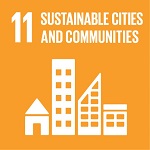
Goal 11: Make cities inclusive, safe, resilient and sustainable
Despite being great hubs for ideas, commerce, culture, science, productivity and social development, cities are still confronted with a variety of challenges, endangering their potential to enable social and economic mobility, while preserving the environment.
- Ensure to adequate, safe and affordable housing and basic services.
- Provide access to safe, affordable, accessible and sustainable transport systems.
- Potentiate inclusive and sustainable urbanization.
- Strengthen efforts to protect and safeguard the world’s cultural and natural heritage.
- Reduce deaths and decrease the direct economic losses caused by disasters.
- Reduce the adverse per capita environmental impact of cities.
- Provide universal access to safe, inclusive and accessible, green and public spaces.
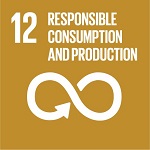
Goal 12: Ensure sustainable consumption and production patterns
Sustainable consumption and production aims to promote resource and energy efficiency and sustainable infrastructure, while providing access to basic services, green and decent jobs and a better quality of life for all.
- Implement the 10-year framework of programmes on sustainable consumption and production.
- Achieve the sustainable management and efficient use of natural resources.
- Halve per capita global food waste at the retail and consumer levels.
- Achieve the environmentally sound management of chemicals and all wastes by 2030, substantially reduce waste generation through prevention, reduction, recycling and reuse.
- Encourage all companies to adopt sustainable practices.
- Promote public procurement practices that are sustainable.
- Ensure that people everywhere have the relevant information and awareness for sustainable development and lifestyles in harmony with nature.
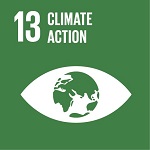
Goal 13: Take urgent action to combat climate change and its impacts
Climate change impacts the whole globe: it disrupts national economies and affects lives, imposing heavy costs on people, communities and countries.
- Strengthen resilience and adaptive capacity to climate-related hazards and natural disasters in all countries.
- Integrate climate change measures into national policies, strategies and planning.
- Improve education, awareness-raising and human and institutional capacity on climate change mitigation, adaptation, impact reduction and early warning.
- Implement the commitment undertaken by developed-country parties to the United Nations Framework Convention on Climate Change to a goal of mobilizing jointly $100 billion annually by 2020 from all sources to address the needs of developing countries in the context of meaningful mitigation actions and transparency on implementation.
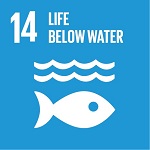
Goal 14: Conserve and sustainably use the oceans, seas and marine resources
The world’s oceans, and their ecosystems, drive global systems that make the Earth habitable for humankind.
- Prevent and reduce, by 2025, marine pollution of all kinds.
- Manage and protect marine and coastal ecosystems to avoid, by 2020, significant adverse impacts.
- Minimize and address the impacts of ocean acidification.
- By 2020, effectively regulate harvesting and end overfishing, illegal, unreported and unregulated fishing and destructive fishing practices.
- By 2020, conserve at least 10 per cent of coastal and marine areas.
- By 2020, prohibit certain forms of fisheries subsidies which contribute to overcapacity and overfishing.
- Increase the economic benefits to Small Island developing States and least developed countries from the sustainable use of marine resources.
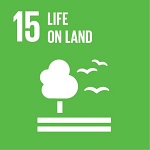
Goal 15: Sustainably manage forests, combat desertification, halt and reverse land degradation, halt biodiversity loss
Every year, roughly thirteen million hectares of forests are being lost while the persistent degradation of drylands has led to the desertification of 3.6 billion hectares.
- Ensure, by 2020, the conservation, restoration and sustainable use of terrestrial and inland freshwater ecosystems and their services.
- Promote, by 2020, the implementation of sustainable management of all types of forests, halt deforestation and increase afforestation.
- Combat desertification and restore degraded land and soil.
- Ensure the conservation of mountain ecosystems.
- Engage in reducing the degradation of natural habitats, halt the loss of biodiversity and, by 2020, protect and prevent the extinction of threatened species.
- Promote fair and equitable sharing of the benefits arising from the utilization of genetic resources and promote appropriate access to such resources.
- Act to end poaching and trafficking of protected species of flora and fauna and address both demand and supply of illegal wildlife products.
- Introduce, by 2020, measures to prevent the introduction and significantly reduce the impact of invasive alien species on land and water ecosystems.
- Integrate, by 2020, ecosystem and biodiversity values into national and local planning, development processes, poverty reduction strategies and accounts.
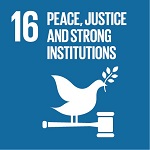
Goal 16: Promote just, peaceful and inclusive societies
The promotion of peaceful and inclusive societies is key for sustainable development built on accountable institutions and on the provision of access to justice for all.
- Reduce all forms of violence and related death rates everywhere.
- End abuse, exploitation and trafficking of children.
- Promote the rule of law at the national and international levels.
- Reduce illicit financial and arms flows.
- Reduce corruption and bribery in all their forms.
- Develop effective, accountable and transparent institutions at all levels.
- Ensure responsive, inclusive, participatory and representative decision-making.
- Broaden and strengthen the participation of developing countries in the institutions of global governance.
- Ensure public access to information and protect fundamental freedoms.
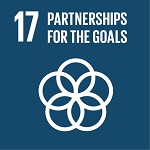
Goal 17: Revitalize the global partnership for sustainable development
A successful sustainable development agenda requires partnerships between governments, the private sector and civil society. These inclusive partnerships built upon principles and values, a shared vision, and shared goals that place people and the planet at the centre, are needed at the global, regional, national and local level.
By 2030, Goal 17 aims to foster and strengthen extensive partnerships within and between the sectors of finance, technology, capacity building, trade.
